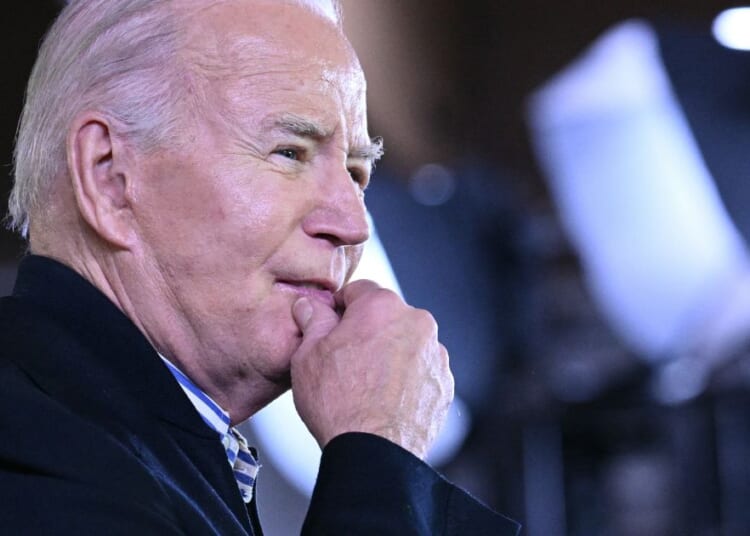In October, President Joe Biden’s re-election campaign released an ad targeting working-class families in his home state of Pennsylvania.
Titled “Never Left,” the nostalgic ad featuring childhood photos of a young Biden aired in the Philadelphia, Pittsburgh and Scranton markets as part of a $25 million campaign, according to the Pennsylvania Capital-Star.
“He grew up a middle-class kid in a middle-class town, and while Joe Biden’s traveled far and wide, Scranton, Pennsylvania, has never left him,” the ad stated.
It doesn’t seem to have worked.
According to State Department data first reported by Newsweek, over 35,000 Pennsylvania voters who were registered as Democrats changed their registration to the Republican Party this year.
Trending:
In contrast, only around 15,600 Republican voters switched to register as Democrats. Additionally, nearly 21,000 Democrats and 19,000 Republicans now have no party affiliation.
According to Nathan Benefield — senior vice president of the Commonwealth Foundation, a Pennsylvania policy organization — Biden is unpopular in the battleground state.
The main reason? Bidenomics.
Benefield told Fox News, “Voters are saying they’re not happy with Bidenomics and the economy, and I think that’s reflected in the registration and some of the voting patterns.”
Will Pennsylvania go red in 2024?
Despite fervent efforts by the Biden administration to market Bidenomics as the best thing since sliced bread, the American people aren’t buying it, mainly because their personal experiences do not reflect what the propaganda is telling them.
As one Pennsylvania swing voter put it, Bidenomics is a “jumbled mess.”
The voter registration shift away from the Democratic Party does not bode well for Biden, who won Pennsylvania by just 80,000 votes in 2020 after Trump won the state in 2016.
Benefield believes 2024 will be very close as well. “Whether Trump and Biden are at the top of the ticket or not, I do think it’s going to be pretty much one of the closest states next year,” he said.
Biden is finding out the hard way that party loyalty only goes so far until economic pain sets in for kitchen-table voters.
He may claim that Pennsylvania “never left him,” but many Pennsylvanians seem to have decided that he has left them, and their votes are likely to reflect it.












